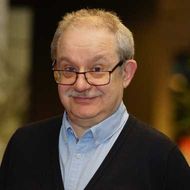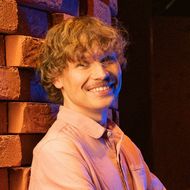- A
- A
- A
- АБB
- АБB
- АБB
- А
- А
- А
- А
- А
- Национальный исследовательский университет «Высшая школа экономики»
- Факультет социальных наук
- Департамент социологии
- Мероприятия
- Международный семинар департамента социологии “Assembling Formal and Informal Urban Governance: Participation, Politics and Clientelism in Recife, Brazil”
-
Подразделения
- Кафедры
- Базовые кафедры
-
Образование
- Бакалавриат
-
Магистратура
-
- Магистерская программа «Комплексный социальный анализ»
- Магистерская программа «Социальный анализ рынков на цифровых и опросных данных»
- Магистерская программа «Социология публичной сферы и цифровая аналитика»
- Магистерская программа «Сравнительные социальные исследования»
- Магистерская программа «Демография»
-
- Аспирантура
- Открытые онлайн-курсы
- Школа маркетинговых исследований
-
Департамент
- О департаменте
- Научная деятельность
- Журналы
- Методические материалы
- Сотрудники
Адрес: 101000, Москва,
ул. Мясницкая, д. 11.
Телефон:
8 (495) 772-95-90*12349
E-mail: izangieva@hse.ru
Наша миссия – научить видеть, думать и действовать. Видеть – проблемы современного общества; изменения, происходящие в его социальной структуре. Думать – свободно, доказательно, открыто. Действовать – на благо обществу, осуществляя свои профессиональные проекты. Для этого мы стремимся к совершенству в преподавании и исследовательской деятельности, создавая атмосферу, благоприятную для обмена опытом и знаниями между преподавателями и студентами.
 Гармонично развитая и социально ответственная личность: концептуальные тезисы
Гармонично развитая и социально ответственная личность: концептуальные тезисы
Овчарова Л. Н., Аникин В. А., Куренной В. А. и др.
М.: Издательский дом НИУ ВШЭ, 2024.
Казун А. Д., Малыгина Н. С.
ИНТЕРакция. ИНТЕРвью. ИНТЕРпретация. 2024. Т. 16. № 4. С. 78-95.
В кн.: Социальная теория и PR. М.: Издательский дом НИУ ВШЭ, 2024. С. 116-144.

Международный семинар департамента социологии “Assembling Formal and Informal Urban Governance: Participation, Politics and Clientelism in Recife, Brazil”

Совместный семинар департамента социологии и кафедры публичной политики
Докладчик: Martijn Koster (Anthropology and Development Studies, Radboud University Nijmegen, The Netherlands)
Тема доклада: “Assembling Formal and Informal Urban Governance: Participation, Politics and Clientelism in Recife, Brazil”
Время: Понедельник 30 октября, 18:10.
Место: Мясницкая улица 11, Аудитория 423.
Рабочий язык: английский.
Для заказа пропуска в НИУ ВШЭ необходимо написать Екатерине Соколовой (ksokolova@hse.ru).
Аннотация доклада:
Based on long-term anthropological fieldwork, this paper analyzes urban governance as an assemblage of formal and informal practices. While many studies on urban governance see it as a highly formalized domain, this paper demonstrates how it is comprised of official procedures and personal favors, of legal frameworks and private arrangements between bureaucrats and residents. It draws on ethnographic research among community leaders and other residents of low income neighbourhoods in the city of Recife, in the Northeast of Brazil. These community leaders are active as political brokers, operating between the state and their fellow residents. They work on a wide variety of issues, ranging from slum upgrading, tenure security and poverty alleviation to cultural expression, gender equality and crime prevention. They claim to ‘speak for’ and ‘act on behalf of’ their fellow residents vis-à-vis the state, both within and outside of participatory programmes. Within participatory programmes, for instance, on land tenure and public services, the community leaders bring residents’ ideas into policy design, translate local meanings to bureaucratic categories, and vice versa. Outside of such programmes, they engage in personalized and often clientelist exchanges with bureaucrats and politicians. Especially when elections are approaching, they use their clientelist channels to negotiate the distribution of resources in return for political support.
This paper argues that the community leaders connect the institutional with the personal and the official with the unofficial. It presents them as connective agents in wider governance assemblages. These assemblages – amalgams of different government, citizen and corporate actors, institutions and resources – constitute temporary power structures that contain both formal and informal practices. The community leaders are key actors in bringing together and forging alignments between the different elements of the assemblage by both formal (e.g. participatory structures) and informal means (e.g. clientelist votes-for-favours exchanges). As special ‘assemblers’, they are a valuable starting point for analyzing urban governance as a formal/informal assemblage. In so doing, this paper contributes to recent debates on the informal dimension of urban governance and, more generally, the interconnections between the formal and the informal.
Приглашаем всех желающих!
- О ВЫШКЕ
- Цифры и факты
- Руководство и структура
- Устойчивое развитие в НИУ ВШЭ
- Преподаватели и сотрудники
- Корпуса и общежития
- Закупки
- Обращения граждан в НИУ ВШЭ
- Фонд целевого капитала
- Противодействие коррупции
- Сведения о доходах, расходах, об имуществе и обязательствах имущественного характера
- Сведения об образовательной организации
- Людям с ограниченными возможностями здоровья
- Единая платежная страница
- Работа в Вышке
- ОБРАЗОВАНИЕ
- Лицей
- Довузовская подготовка
- Олимпиады
- Прием в бакалавриат
- Вышка+
- Прием в магистратуру
- Аспирантура
- Дополнительное образование
- Центр развития карьеры
- Бизнес-инкубатор ВШЭ
-
http://www.minobrnauki.gov.ru/
Министерство науки и высшего образования РФ
-
https://edu.gov.ru/
Министерство просвещения РФ
-
http://www.edu.ru
Федеральный портал «Российское образование»
-
https://elearning.hse.ru/mooc
Массовые открытые онлайн-курсы
- © НИУ ВШЭ 1993–2024 Адреса и контакты Условия использования материалов Политика конфиденциальности Карта сайта
- Редактору




